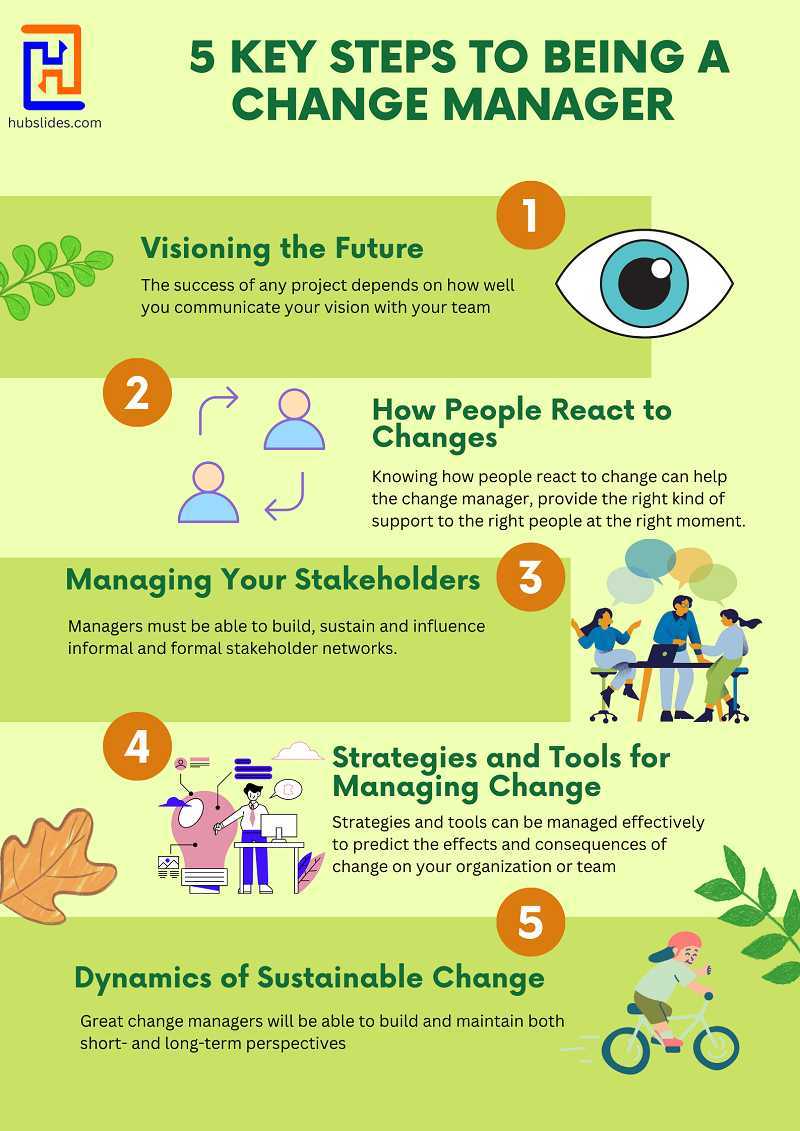Change Management: Types And Forms Of Management

Change management is a crucial process within organizations that involves planning, implementing, and monitoring changes in a structured and efficient manner.
Aims of Change Management
Change Management aims to facilitate smooth transitions within an organization, ensuring that changes are adopted successfully and effectively.
It is a multidimensional approach that encompasses various strategies and techniques to manage the impact of change on individuals, teams, and the organization as a whole.
Understanding Change Management
Change management is the systematic and structured approach to transitioning individuals, teams, and organizations from their current state to a desired future state.
Change Management involves understanding the need for change, preparing individuals and teams for the change, managing resistance, and ensuring the successful adoption of the change.

Components of Change Management
In the dynamic landscape of organizations, change is a constant force, necessitating a structured approach to manage its impact effectively.
These components form the pillars of a successful change management strategy, encompassing assessment, planning, communication, training, implementation, and evaluation.
Utilizing these components strategically can significantly enhance an organization's ability to adapt, evolve, and thrive in an ever-changing environment.
1. Assessment and Analysis:
Assess the current state of the organization, identify the need for change, and analyze the impact of the proposed changes.
2. Planning:
Develop a comprehensive change management plan outlining the goals, objectives, strategies, communication plans, and timelines for the change.
3. Communication:
Establish clear communication channels to inform all stakeholders about the reasons for the change, its benefits, and the expected outcomes.
4. Training and Development:
Provide training and development programs to equip employees with the necessary skills and knowledge to adapt to the change.
5. Implementation:
Execute the planned changes, monitor progress, and adjust strategies as needed to ensure the change is effectively integrated.
6. Feedback and Evaluation:
Gather feedback from employees and stakeholders, evaluate the effectiveness of the change, and make further adjustments if required.

Types of Change Management
Change management can be categorized into different types based on the nature and scope of the change being implemented. Understanding these types helps in selecting appropriate strategies to manage the specific change that occurs effectively and efficiently.
1. Organizational Change:
This type of change involves making alterations to the structure, processes, or culture of the organization. Examples include mergers, acquisitions, reorganizations, and cultural transformations.
2. Technological Change:
Technological change involves the implementation of new technologies, systems, or software within the organization. This type of change aims to enhance efficiency, productivity, and competitiveness.
3. Process Change:
Process change focuses on modifying or improving existing business processes to optimize performance, streamline operations, and achieve better outcomes.
4. Strategic Change:
Strategic change involves significant shifts in the organization's overall goals, mission, vision, or business model. It often requires redefining the organization's direction to adapt to evolving market conditions.
5. Individual Change:
Individual change pertains to changes in an individual's role, responsibilities, or behaviors. This could include changes in job functions, reporting structures, or personal development goals.

Forms of Management
Management is the art and science of achieving organizational goals through effective planning, organizing, leading, and controlling of resources. Different forms of management have evolved over time to suit various organizational structures, industries, and management philosophies.
1. Classical Management:
- Scientific Management: Developed by Frederick Taylor, scientific management focuses on optimizing labor productivity by analyzing and improving work processes.
- Administrative Management: Proposed by Henri Fayol, administrative management emphasizes general principles of management applicable to all organizational settings.
2. Behavioral Management:
- Human Relations Approach: This approach recognizes the importance of social and psychological factors in the workplace and emphasizes employee satisfaction, motivation, and group dynamics.
- Behavioral Science Approach: Incorporates concepts from psychology, sociology, and anthropology to understand individual and group behavior within organizations.
3. Modern Management:
- Systems Theory: Views organizations as complex systems with interconnected parts, where changes in one part affect the entire system.
- Contingency Theory: Suggests that the most effective management approach depends on the specific situation or context.
4. Strategic Management:
- Strategic Planning: Involves setting long-term goals, formulating strategies, and aligning resources to achieve the organization's vision and mission.
- Strategic Implementation: Focuses on executing the chosen strategies effectively and efficiently to realize organizational objectives.
5. Project Management:
- Traditional Project Management: Follows a linear approach with well-defined phases (initiation, planning, execution, monitoring, and closing) to manage projects.
- Agile Project Management: Utilizes an iterative and flexible approach, responding to change and delivering incremental improvements through collaboration and adaptability.
Change management is not merely a reaction to change but a proactive and strategic response to it.
Embracing the components of assessment, planning, communication, training, implementation, and evaluation enables organizations to proactively guide change, minimize resistance, and maximize the benefits of transformation.
Understanding the various types of change management and forms of management is essential for organizations to navigate the complexities of change and employ appropriate strategies to achieve their objectives.
Author Bio
The Editorial staff includes content researchers from various areas of knowledge. They add a plethora of expertise to the Hubslides Editorial team. They constantly and frequently oversee, produce and evaluate contents that are most ideal to aid impacting knowledge to readers.
Article Comments
No Comments!
At present there are zero comments on this article.
Why not be the first to make a comment?
Similar Articles
Sponsor
Search Articles
Experts Column
Latest Articles
Featured Articles
Most Popular Articles












